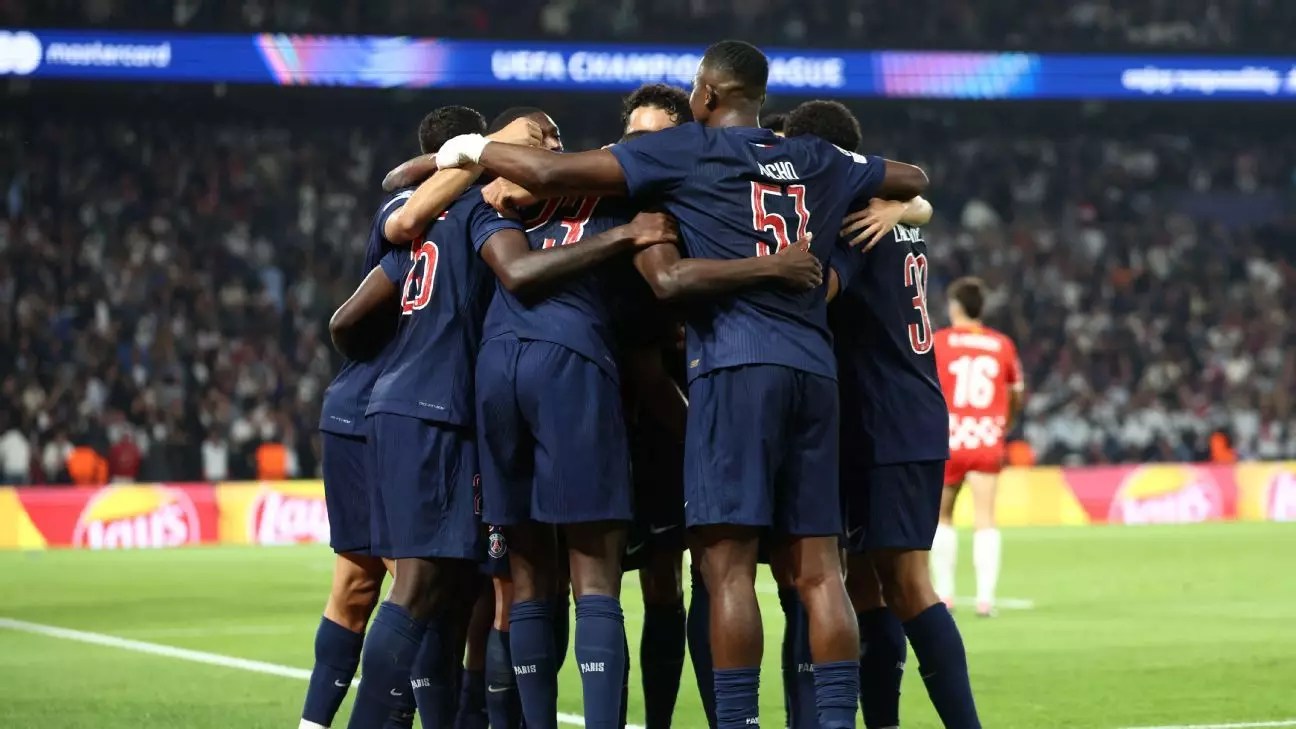The recent incident at Parc des Princes during a Ligue 1 match between Paris Saint-Germain (PSG) and Strasbourg has ignited a firestorm of controversy, particularly around the persistence of discriminatory behavior in sports. PSG fans directed homophobic chants at their rival team, particularly focusing on midfielder Adrien Rabiot, a former PSG player now with Marseille. This situation exemplifies a troubling trend within football, where discrimination often rears its head amidst fierce rivalries.
Ligue 1’s condemnation of the anti-gay chants was swift, but it raises questions about the efficacy and sincerity of their response. The league stated that such behavior is “unacceptable” and highlighted the ongoing struggle against homophobia in the sport. Yet, the chants were allowed to persist during the game without any immediate penalties, which may suggest a lack of robust enforcement mechanisms. Just as alarming is the fact that the stadium announcer’s pleas to stop the chants were met with hostility from the crowd. This behavior reflects an entrenched culture of discrimination that demands more than just verbal condemnation—it necessitates concrete actions and accountability.
The recent episode is not an isolated incident. Last season, PSG players were handed a one-match suspended sentence for using derogatory language against Marseille fans. This repeated cycle of discriminatory behavior raises critical concerns about the effectiveness of current disciplinary measures. While the disciplinary committee has indicated that it will review the evidence regarding the recent chanting, fans may wonder whether existing strategies to combat such behavior are adequately stringent or merely superficial.
Moreover, the punishment faced by PSG’s Auteuil stand, which was closed for two matches due to similar conduct, highlights a reactive rather than proactive approach to tackling homophobia in the sport. If the league has known of repeated incidents, why have consistent measures not been established to deter such behavior altogether?
The rivalry between PSG and Marseille, rooted in decades of football history, complicates the current dialogue about discrimination. As PSG has evolved into a powerhouse following Qatari investment, the stakes of these encounters have only heightened. While PSG boasts superior domestic success, Marseille, despite lacking recent championships, enjoys nostalgia as the only French club to have won the UEFA Champions League. The passionate fan bases often translate their fervor into aggression, revealing a disturbing link between competitive spirit and acts of intolerance.
For Ligue 1 and its clubs to foster a truly inclusive environment, they must do more than issue statements condemning homophobia. Robust educational programs for fans and players alike are crucial. Additionally, real-time consequences for discriminatory actions should be enforced more rigorously to create a culture where such behavior is neither tolerated nor accepted.
As the rivalry continues, stakeholders in French football must prioritize inclusion, not just for the integrity of the sport but also for the safety and dignity of everyone involved. Football, in its essence, should serve as a unifying force that transcends discrimination, not a battlefield for division. It’s time for the sport to evolve.


Leave a Reply